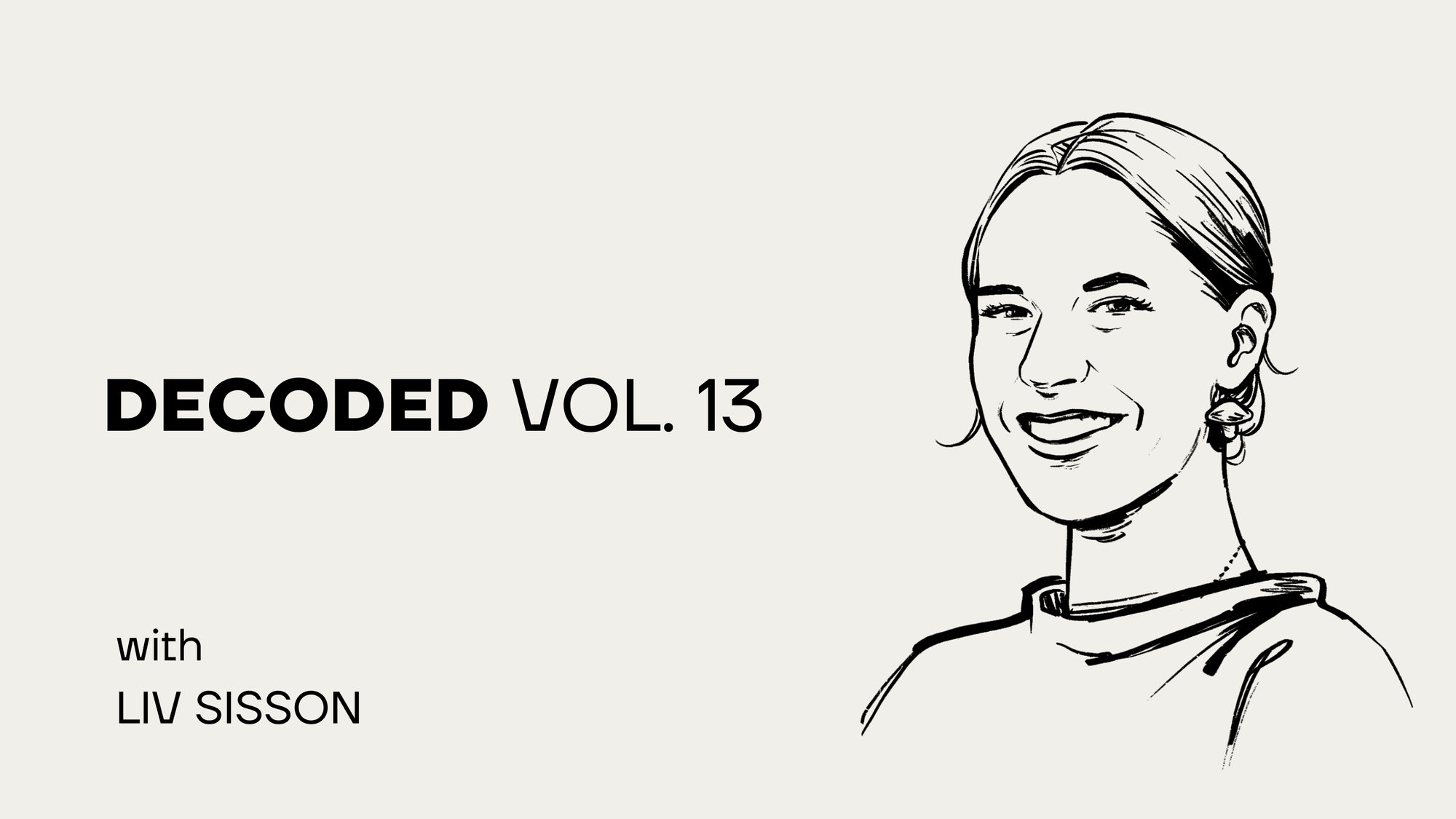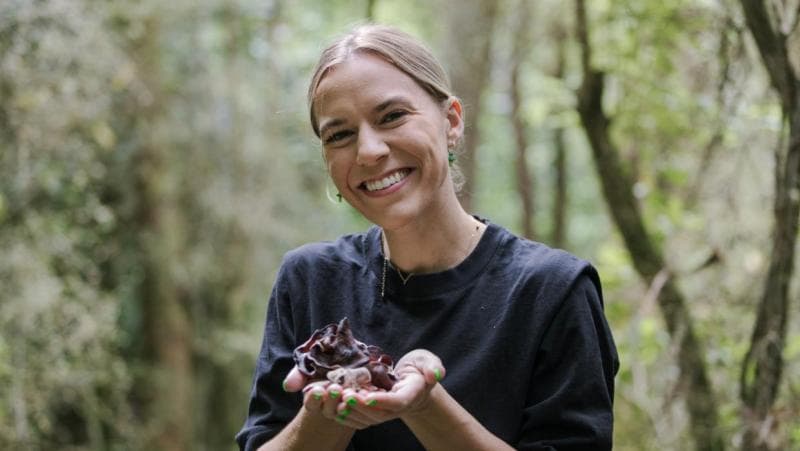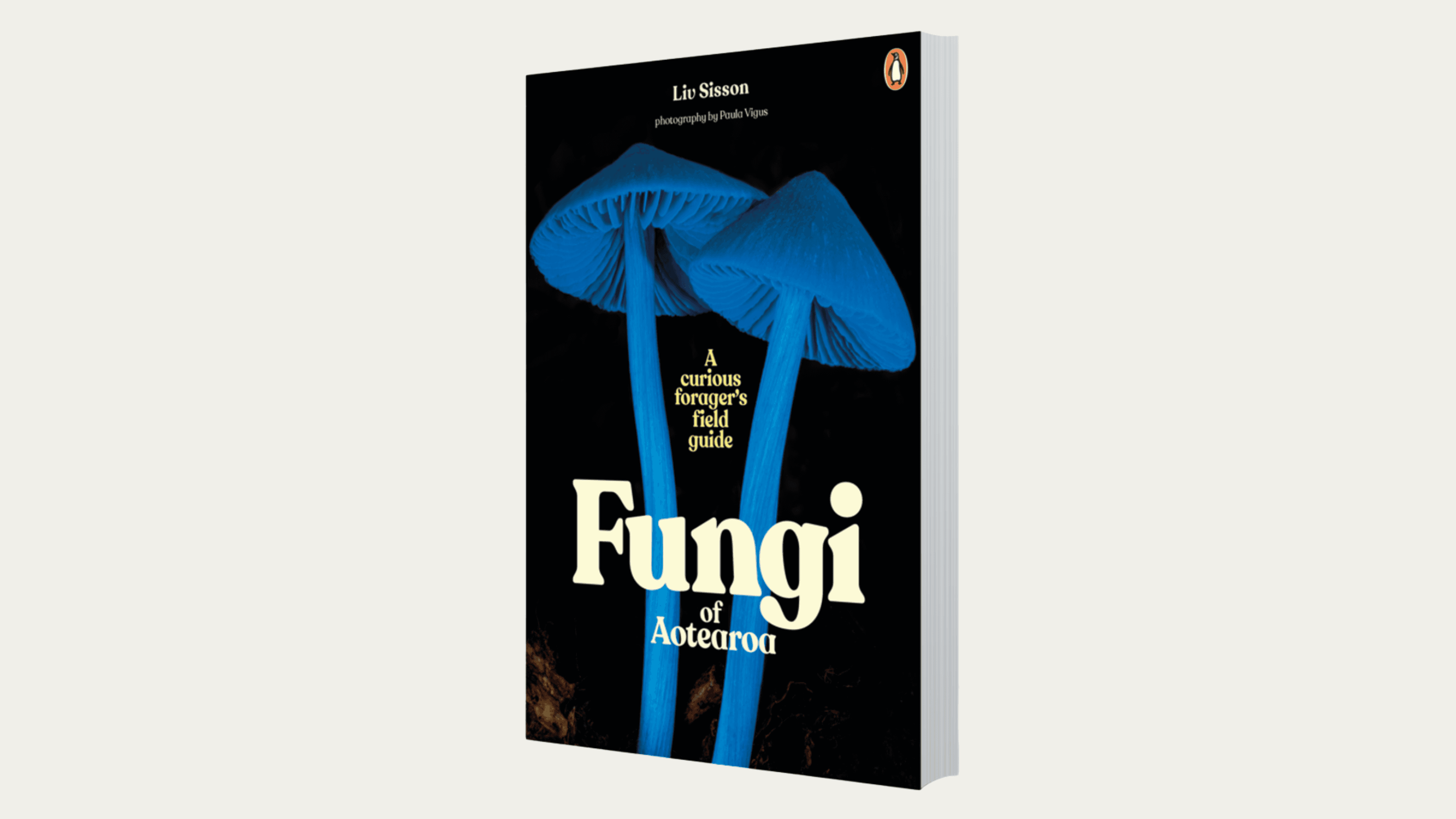Newsroom
From Mushrooms to the media: Liv Sisson on storytelling and finding her place at The Spinoff
Written by Daylight - April 22, 2025

Olivia ‘Liv’ Sisson is an editor, author and science communicator. Her first book ‘Fungi of Aotearoa’ enchanted readers, became a bestseller and was shortlisted for an Ockham award. Liv grew up in Virginia, across the river from Washington D.C., and went to university in the Blue Ridge Mountains. Her career path has been varied but has always involved writing. After five years of freelancing in Christchurch, she moved to Auckland in 2024 to work at The Spinoff.
Kia ora Liv! Tell us about yourself. What brought you to Aotearoa?
I came out here to study abroad at Otago. I really wanted to go on a big adventure, and I’d heard that New Zealand was incredibly beautiful. I was studying geology, so I wanted to be outside exploring different landscapes.
I did one semester in Dunedin and just had the best time – lots of tramping, lots of partying and I met so many great people. After six months, I went back to the U.S. to finish my degree, but I kept crossing paths with this Kiwi guy, Duncan, who had been my neighbour and friend at Otago. We started dating, and eventually, I moved back to Aotearoa with him. That was six years ago, we’re getting married soon.
You studied geology and art. Was writing always part of the plan, or did you fall into it?
I’m not really a goal-setter or big forward planner professionally I guess. I didn’t set out to be a writer or an author. I guess I’ve let my curiosity lead me and I’ve tried to collect stories and document what I learn along the way. That’s how I ended up writing the fungi book!
I've always loved writing. I wrote a lot as a kid. At university, I studied geology and art. That meant a lot of analytical thinking and fieldwork on the geology side and then printmaking and reading/writing about art on the other side. Using both sides of my brain and writing on different subjects in different tones, academic versus creative, was rewarding for me.
Tell us about how you ended up at The Spinoff.
When I moved to New Zealand with Duncan, it was just before COVID. I had some work but was still finding my footing in a new place, so I started looking for freelance gigs. I landed a small job writing about hospitality in Christchurch, which led to bigger projects with regional tourism boards. My friend Nancy Zhou, a photographer, and I would spend a week in different regions, trying out restaurants, cafes and attractions. She’d take photos, and I’d write stories. The tourism boards would then use that content for marketing campaigns, like Dunedin’s campaign ‘A Pretty Good Plan D’. It was a great way to meet people and see the country.
At some stage I had a weekly hospitality news column in The Press, which was a lot of fun and a great creative outlet. I wanted to write more research-driven stories, though. On a solo trip to Japan, I visited a wasabi farm, and found it so interesting – most ‘wasabi’ is actually just horseradish plus green food dye, the real stuff is very special and hard to grow.
When I got back to NZ, I found out that there were a few growers here, so I pitched a story on them to The Spinoff. Alice Neville replied and was like, ‘Yeah, cool, write it’. That was in 2021 and from there, I kept pitching and writing whenever I had time and ideas – mostly for the ‘Kai’ section. So yeah, I’ve always loved reading The Spinoff and being an occasional contributor. When I saw this role open up last year, I immediately applied, and here I am.
Have you always been interested in food?
Yeah, I grew up in a gardening family. My grandparents were huge market gardeners, so we spent a lot of time weeding, stringing runner beans, picking tomatoes and flowers together. In the summers we’d make a little stand and sell some of it. I've always been curious about food, how it’s grown, where it comes from, what it means.
When I moved to New Zealand, I was fascinated by the food system here. Our kai is so beautiful, the best in the world in so many cases. But then, why is it so expensive here on shore? Why are there only two supermarket chains? Why is food insecurity so high here? I just had so many questions and got to explore them in some of my freelance Spinoff stories.
What is your role at The Spinoff? What do you do there?
My role is commercial editor. It’s kinda hard to explain it to people outside the media because while most understand the editorial side of the business – everyone reads news articles – fewer understand, or even recognise, I guess, the commercial side of the business.
At The Spinoff, we’ve got longstanding partnerships with brands like AA Life Insurance. Their commercial support allows us to create big projects like podcasts and ‘Death Week’ which you may have seen – basically we spent a week on The Spinoff exploring death from all angles.
It’s my job to work with our commercial and editorial teams to come up with big ideas like that – things The Spinoff would create anyway that could add value to a partner and our audiences. When we find a partner or a partner who comes to us with a big idea, I work with writers, illustrators, photographers to bring it to life.
You are a unique combination of writer and marketer. How do you find those skills complement each other?
They might seem like opposite worlds, but they actually need each other. A big creative idea is exciting, but it needs commercial buy-in to come to life. Likewise, commercial projects need creativity to make an impact.
Practically speaking, it’s helped me a lot; knowing how to pitch ideas, structure proposals and frame stories in ways that resonate. I love the craft of writing, but I also enjoy the thrill of winning a big creative deal and then actually making the thing.
What inspired you to write Fungi of Aotearoa? It’s interesting that someone relatively new to New Zealand would write about its fungi.
Yeah, it's a very niche thing to do I guess. When I moved here the landscapes, the native bush, everything was so unfamiliar to me compared to the forests I grew up in in Virginia.
When you walk the same paths repeatedly, it’s easy to stop noticing things. But for me, every tramp, every bushwalk here was a brand-new experience. I felt like a five-year-old seeing the world for the first time. I kept thinking, "What’s this? What’s that?", and because I love research, I started looking things up and sharing what I learned on Instagram.
Over time, I realised I’d built up a decent working knowledge of fungi and also had a decent writing portfolio. During COVID, I noticed more people getting interested in fungi, and I also noticed there weren’t very many books on NZ fungi. A friend casually asked if I’d ever write a book about it, and I thought, ‘Yeah, that could be cool’. Eventually, I pitched one.

How have people responded to the book? Have you noticed a resurgence in foraging?
The response to the fungi book has been so lovely and so much bigger than I would’ve ever thought. It got reprinted several times and people of all ages seems to love it – our friends’ ten month old is constantly wanting to read it. It’s got loads of very colourful photos! I got to take the book on tour kind of too – to reading, writing, art and food festivals around the country. It was so much fun. I feel really grateful for that experience.
On the foraging front, it wasn’t so much about sparking a resurgence in foraging – that wasn’t my goal. What excites me is the sense of wonder, curiosity and awe that topics like this can inspire.
The most rewarding thing has been people telling me, ‘Now, when I go for a walk, I actually notice things I’ve never seen before.’ Even in places they’ve walked a hundred times. It’s been amazing to see people engaging with their environment in a new way. At its core, the book is really about curious observation and finding joy in noticing the world around you. It does, importantly, have a really informative section foraging fungi!
Were there any unexpected challenges in writing your first book?
So many. One big one was learning to accept that 80% is good enough. I like to make things perfect and extra special. I could tweak things forever if left to my own devices.
With something as big as a book, you could work on it endlessly, but at some point, you have to let go and let it be finished. It was hard to accept that I couldn’t include everything. Even now, I look at the book and think, ‘Oh, I could’ve used this image, written that differently, included this or that.’ But the reader will never know about any of those decisions, or what could’ve been.
Letting go of perfectionism and trusting my publisher was a huge learning curve. By the end, I trusted her completely and took every suggestion she made without hesitation. Looking back, this was 100% the right call.

What’s been one of your proudest career moments?
Seeing my book in physical form for the first time felt whimsical. It started as five years of research for fun, with no plans to do anything with it. I never expected it to turn into something tangible.
Then, the book got nominated for an Ockham award, which was not a possibility I’d even thought to consider. I thought it would just be a niche nature book for fellow nerds, but it has resonated with a much wider audience. That’s been really special.
What are you working on now?
Becoming a better editor! I’m used to being the writer, so this is a new skill for me. I’m also working on another book about nature.